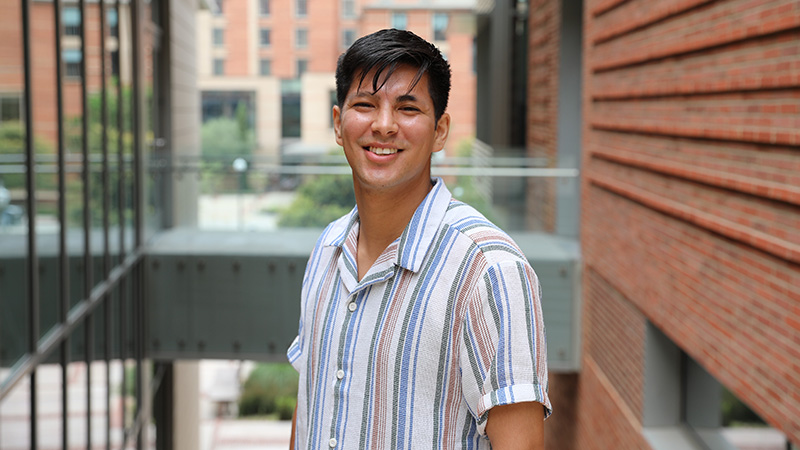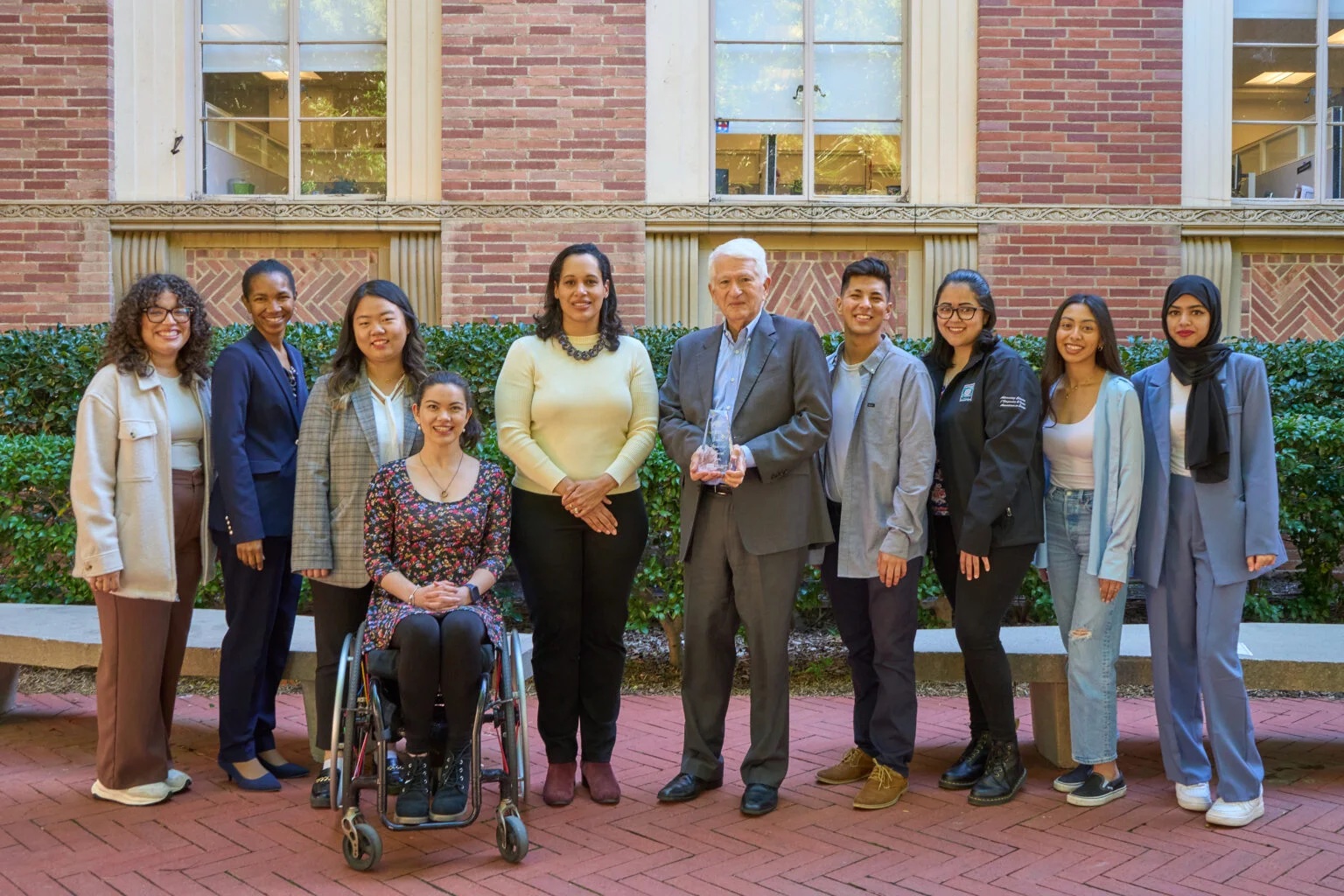First-Gen Latino Doctoral Student Aims to Make an Impact in STEM

The fourth-year doctoral student at the UCLA Samueli School of Engineering recalled how hard his parents, who emigrated from Mexico, worked manual labor jobs to support him and his three siblings. From an early age, Ramirez was passionate about math and science even though his family members did not share an affinity for the subjects.
“That motivated me even more to prove that someone in our family could succeed in the STEM field,” Ramirez said of his decision to become the first in his family to attend college and to pursue a degree in science, technology, engineering and mathematics. Throughout high school, he was particularly interested in chemistry and math. When it came time for college, he chose to major in chemical engineering because it combines the essence of the two disciplines.
“I am passionate about uplifting the Latino/Latinx community in the engineering disciplines because of the lack of representation in higher education,” Andrew Ramirez said.
During his time at UC Davis, Ramirez discovered that many professors and people in leadership positions in academia do not look like him or share a similar background. This realization inspired him to pursue an advanced degree in preparation for a career in teaching at the college level. He participated in the U.S. Department of Education-funded McNair Scholars Program, which is designed to increase graduate degree awards for students from groups underrepresented in STEM. Ramirez was paired with a biomedical engineering professor and conducted research in her lab. Through that experience, he found a new passion for research at the intersection of medicine, engineering and biology.
UCLA’s strong support network and its Competitive Edge Program — a six-week, full-time summer bridge program for incoming doctoral students from underrepresented backgrounds who have an interest in pursuing a faculty or research position — sealed the deal for Ramirez when it came time to pick a graduate school.
Working in associate bioengineering professor Aaron Meyer’s lab, Ramirez focuses his research on developing a single-cell data reduction method for multi-condition experiments, which will enable a better understanding of how different experimental conditions affect single-cell responses.
For one of his Ph.D. courses, Ramirez needed to create a teaching-as-research project. He decided to focus on how to incorporate equity and inclusion discussion in the machine-learning and computational-biology field. With the help of his advisor Meyer, the two created a lecture that uses case studies to illustrate how equity overlaps with bioengineering and machine-learning problems, and explore ways to address the issue.
Outside of his academic pursuit, Ramirez is also committed to paying it forward, providing support and mentorship for others in his community.
“I am passionate about uplifting the Latino/Latinx community in the engineering disciplines because of the lack of representation in higher education,” Ramirez said. “Such a small percentage of Latinos/Latinxs graduate with an engineering degree because they don’t see others who look like themselves, come from a background where it’s difficult to ask for help and usually become the first in their families to pursue engineering,” he said.

Pictured (from left): EDI Student Initiatives Lead Anyssa Llerena, EDI Research & Bruin Engagement Office Director Linda Clowers, Award Winner Ji Yoon (Gloria) Kim, Award Winner Carolanne Link, Vice chancellor for EDI Anna Spain Bradley, UCLA Chancellor Gene Block, Award Winner Andrew Ramirez, Award Winner Norma Sandoval, Award Winner Ashley Ceballos Hernandez, Umiemah Farrukh.
To help solve the problem, Ramirez joined various organizations aimed to improve diversity in STEM. He served as a finance chair of the Society for Advancement of Chicanos/Hispanics and Native Americans in Science at UCLA, where he implemented a Lunch with Professor Series and a Postdoctoral Panel designed to enhance collaborations between faculty and students. He also has been involved in the non-profit Project SHORT (Students for Higher-Ed Opportunities and Representation in Training) and the First-Gen Graduate Student Council. As the director of information management for the council, he advocated for first-generation graduate students to receive equivalent support as their undergraduate counterparts, while also organizing student panels and workshops to address challenges and build a support community.
For his many contributions and exceptional leadership in improving inclusive excellence, Ramirez was selected as one of the honorees for the inaugural 2022-2023 UCLA Equity, Diversity and Inclusion Student Leadership Award.
“Receiving the UCLA Equity, Diversity and Inclusion Student Leadership Award was a validating event because it demonstrated that UCLA recognized the hard work I, and the organizations I was involved with, have put into the community on campus. I felt seen for the effort I have been inputting into the university,” Ramirez said.
Looking ahead, Ramirez said his dream career would be a dual role as an engineering lecturer and a director of a diversity program, such as the McNairs Scholars Programs that had given him, and others like him, an opportunity to succeed in higher education.
